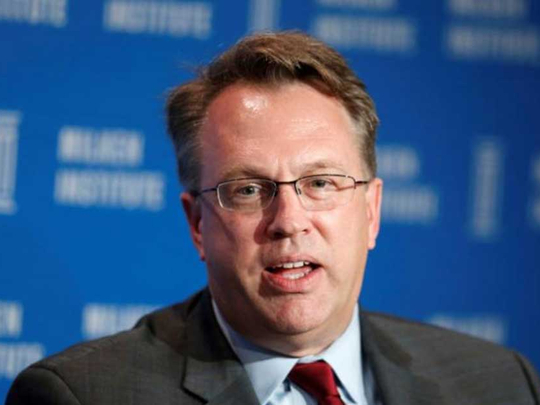
San Francisco: Federal Reserve Bank of San Francisco President John Williams said he’d support one interest-rate increase in 2016 and a few more next year, though he added that he’d be unperturbed if inflation rose above the Fed’s 2 per cent goal.
“The US economy is well-positioned to raise interest rates,” Williams told reporters in San Francisco on Friday. Having “a rate increase this year makes sense, having a few rate increases next year makes sense, in the context of how the economy has been performing and continues to perform.”
The Fed is assessing how much progress it has made toward its dual goals of 2 per cent inflation and maximum employment as it weighs when to raise interest rates for the first time since December. Officials aren’t expected to lift rates when they meet in Washington November 1-2, the week before the US presidential election, though economists and investors do anticipate an increase at the Fed meeting in mid-December.
While the US central bank has missed its inflation goal for four years, core inflation has picked up and headline is expected to follow as the effects of an oil-price drop fade from the data. US unemployment is 5 per cent — roughly consistent with the level Williams said he views as consistent with full employment. Officials projected one rate rise this year and two in 2017, according to the median estimate of their forecasts in September.
Target range
Williams said that he will be “definitely not losing sleep” if the Fed overshoots its inflation target, and that it’s “absolutely essential that we demonstrate that we can hit this 2 per cent inflation goal.”
Williams, who doesn’t vote on Fed policy this year and won’t until 2018, said that he would have supported a September rate increase.
Most Fed voters sided with Yellen in September when the policy-setting Federal Open Market Committee kept the target range for their benchmark policy rate unchanged at 0.25 per cent to 0.5 per cent, although several officials have said the decision was a close call. Three FOMC voters dissented, arguing for a rate hike.











